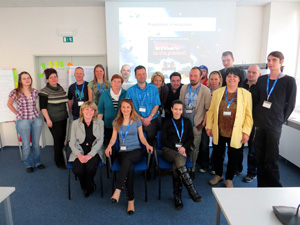What are the benefits of this vision?
Economic
- Breeding and producing insect-based food may offer new job opportunities, while reducing imports of food and other related activities
- Financial savings from reduced import of meat products
- Insects are easy to breed as they feed on debris and waste
- There are plenty of insects, which can be found throughout the planet and in any country
Environmental
- Breeding of insects does not produce CO2 as part of livestock production and therefore do not
- Contribute to global warming
- Achieving government emission target
- Decrease in meat production and consumption
Social
- Insects are healthy and contain large amounts of protein, while reducing the incidence of cardiovascular disease and other chronic conditions that are induced by red meat consumption
- There are possibilities of various modifications such as the consumption of insects in the form of nutritional cocktails, which are more visually attractive
- People can capture, keep and cook insects themselves, thus being self-sufficient
- Protection and respect for animals; reducing animal cruelty
What are possible negative consequences of this vision?
- Large number of insects needed to feed a person
- Potential fear and uncertainty towards novel products
- Low demand for meat products affecting meat production sector and international trade
What is required for achieving this future? (knowledge, policies, resources, skills, etc.)
Policies
- Promote standards and legislation for breeding and consumption of insects in the EU
- Develop regulations for the safe breeding and processing technologies
- Develop effective monitoring and quality control
Knowledge and skills
- Marketing and familiarization with insect-based products and services
- Thorough research on the impact of insects’ consumption
- A cookbook with attractive recipes and images
- Societal reassurance and cultural/behavioural change
Resources
- Build a complete new infrastructure for breeding, storing, trading and consuming insects
- Develop human resources, i.e. a new workforce dealing with the supply and demand of insect-based products and services

